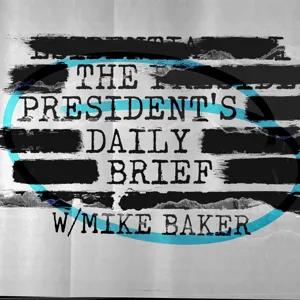Nearly every dimension of the Ukraine-Russia conflict has been shaped by energy markets.
Russia’s oil and gas exports have long been the foundation of its economy and geopolitical strength. Vladimir Putin’s decision to invade Ukraine — like his annexation of Crimea in 2014 — coincided with high energy prices. While Western sanctions have dealt a major blow to Russia’s financial system, European carve-outs for Russian oil and gas have kept hundreds of millions of dollars flowing to Moscow every day.
As a result, energy policy has become foreign policy. European countries are doubling down on their commitments to decarbonize in order to reduce their dependence on Russian energy as quickly as possible. The United States has banned Russian oil and gas imports, and in the wake of spiking gasoline prices, the Biden administration is looking for any opportunity to increase the world’s oil supply, including the possibility of normalizing trade relations with previously blacklisted countries like Venezuela and Iran.
But the intersection of energy and geopolitics extends far beyond this conflict. Energy is the bedrock of nations’ economic prosperity, military strength and geopolitical power. Which means energy markets are constantly shaping and reshaping global dynamics. You can’t understand the way the world operates today if you don’t understand the global flow of energy.
There are few people who have studied energy markets as closely as Daniel Yergin has. He is an economic historian and writer who has been called “America’s most influential energy pundit” in The New York Times. And he’s the author of numerous books on the intersection of energy and geopolitics, including the Pulitzer Prize-winning “The Prize: The Epic Quest for Oil, Money, and Power” and, most recently, the best-selling “The New Map: Energy, Climate, and the Clash of Nations.”
We discuss how Putin’s invasion halfway across the world caused gasoline prices to rise in California; what would happen to European economies if they decided to cut off Russian gas; how the U.S. shale revolution has transformed the global political landscape; why, when it comes to China and Russia, Yergin believes that “a relationship that was once based on Marx and Lenin is now grounded in oil and gas”; whether Donald Trump was right to be skeptical of Nord Stream 2; why decarbonization is not only beneficial for the climate but also crucial for national security; whether the Biden administration’s response to spiking energy prices is putting its climate agenda in jeopardy; why Yergin thinks hydrogen power could become central to combating climate change; and much more.
Book recommendations:
Putin’s World by Angela Stent
The Power of Law by Sebastian Mallaby
The Cloud Revolution by Mark P. Mills
Thoughts? Guest suggestions? Email us at ezrakleinshow@nytimes.com.
You can find transcripts (posted midday) and more episodes of “The Ezra Klein Show” at nytimes.com/ezra-klein-podcast, and you can find Ezra on Twitter @ezraklein. Book recommendations from all our guests are listed at https://www.nytimes.com/article/ezra-klein-show-book-recs.
“The Ezra Klein Show” is produced by Annie Galvin, Jeff Geld and Rogé Karma; fact-checking by Andrea López-Cruzado; original music by Isaac Jones; mixing by Jeff Geld; audience strategy by Shannon Busta. Our executive producer is Irene Noguchi. Special thanks to Kristin Lin and Kristina Samulewski.






